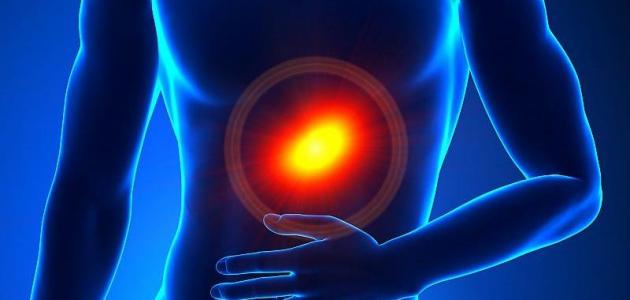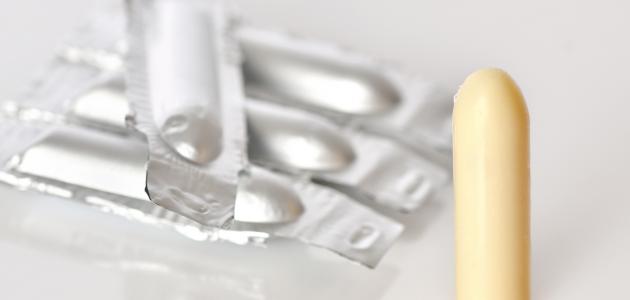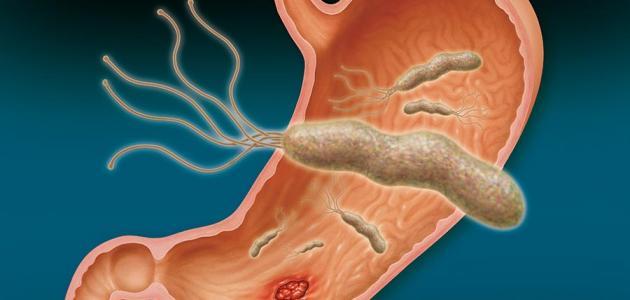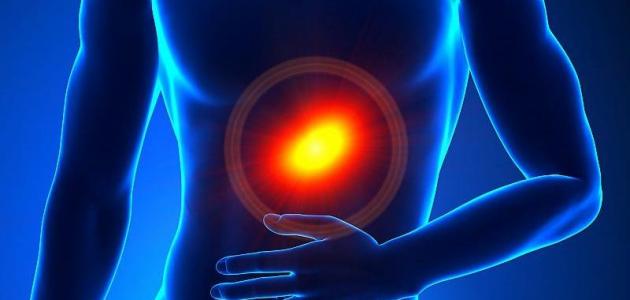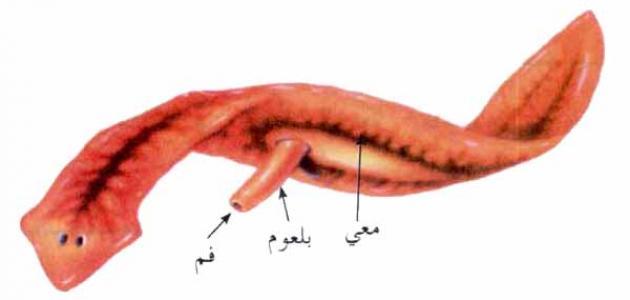Gastroenteritis
Stomatitis is a pathological condition in which irritation occurs in the mucous lining of the stomach, and this lining contains glands that secrete hydrochloric acid, which breaks down food, and the enzyme pepsin, which digests proteins. When inflammation occurs in the mouth of the stomach, the secretion of acids and enzymes reduces this lining. It also reduces the secretion of mucus and other compounds responsible for protecting the stomach from its acids.
And gastroenteritis is of two types: either acute and in which this irritation is sudden and severe, or chronic that occurs over a long period of time that may extend for years if it is not treated in an appropriate way. It can also be divided according to the damage to the lining of the stomach into erosive and non-erosive.
Causes of gastritis
Stomach inflammation results from several causes, all of which are involved in weakening the stomach's defenses and reducing the thickness of the mucous membrane lining it, which makes it more vulnerable to inflammation due to acids. But these reasons are as follows:
- Irritation of the mucous membraneThere are many reasons for this: such as excessive consumption of alcoholic beverages, continuous vomiting, stress, or excessive use of some types of pain relievers and anti-inflammatory drugs.
- Helicobacter pylori infectionIt is a type of bacteria that lives naturally in the mucous lining of the stomach, and infection with this infection is a major cause of stomach ulcers, and it may lead to stomach cancer if not treated properly.
- Bile reflux disease From the bile ducts associated with the liver and gallbladder, to the stomach.
- Pernicious anemiaIt is a type of anemia, in which the stomach suffers from a deficiency in a specific substance that requires proper absorption and digestion of vitamin B12.
- Suffering from a bacterial or viral infection.
- there risk factors Several increase, when present, the chance of developing gastritis; Such as advancing age due to the lack of thickness of the mucous membrane in the elderly, or having certain types of autoimmune diseases, or suffering from diseases of the digestive system such as Crohn’s disease, or having a condition called distress that follows a burn injury, or undergoing a major surgery, or having a severe disease. .
Symptoms of gastritis
Gastroenteritis does not usually cause any symptoms, but it is diagnosed after taking samples from the lining of the stomach when examined to reach a diagnosis of other diseases, but when symptoms occur, they are as follows:
Read also:What are the causes of gases in the stomach- Feeling nauseous or vomiting.
- Feeling of indigestion.
- A feeling of fullness in the abdomen, especially in the upper part, especially after eating.
- If gastritis is of the erosive type, other symptoms may be present. For example, the color of the patient's stool is dark black, or the patient vomits blood, or a substance that is the color of ground coffee comes out with vomiting.
Treatment of gastritis
One of the most important steps in the treatment of gastroenteritis is to discover the main cause of its occurrence and work to get rid of it. Treatment of gastroenteritis includes various methods, including what is domestic and includes following certain practices and behaviors, including what requires taking certain medications, either to try to treat it permanently or to reduce its symptoms. These methods are as follows:
- Changing your lifestyle and following home treatment: This method is often used to relieve symptoms and signs of gastritis, and this type includes several steps, including:
- Avoid types of foods that irritate the lining of the stomach, particularly those that are hot, sour, or fried that contain high levels of fat.
- Avoid consuming alcoholic beverages, as it is considered an irritant to the stomach.
- Divide the food into multiple and small meals, and this method is considered useful if the patient suffers from indigestion, then it is advised to stop eating three large meals a day as much as possible.
- Avoid tension as much as possible, because it has a significant negative impact on the health of the stomach and also exacerbates other symptoms, and it is advised to follow certain steps that help the patient to relax if avoiding tension is not possible.
- Using other types of pain relievers; such as consisting of acetaminophen compound, and stay away from those containing aspirin, ibuprofen, naproxen, etc., or what is also called non-steroidal anti-inflammatory drugs.
- Many cases of gastritis are treated using various types of medications in order to relieve symptoms or facilitate the healing process. Among these medications are the following:
- The use of antibiotics to eliminate H. pylori bacteria: as many doctors advise taking a combination of medicines consisting of each of; Clarithromycin, amoxicillin and metronidazole, and care must be taken to use this treatment for a period ranging between 10 and 14 days.
- Taking types of medications responsible for reducing the amount of acid produced by the lining of the stomach: These compounds are called histamine 2 inhibitors, and they include: ranitidine, famotidine, cimetidine, and nizatidine. These medicines can be dispensed even without a prescription. Histamine-2 inhibitors reduce symptoms of gastroenteritis and improve the rate at which the stomach lining heals.
- Use of drugs that stop the secretion of acids and facilitate healing of the stomach lining: These compounds include a family of drugs called proton channel inhibitors, including: omeprazole, lansoprazole, esomeprazole, dexlansoprazole, rabeprazole, and others. Some doctors may resort to giving calcium auxiliary nutrition with these medicines. Because it increases the chances of fractures in the wrist, pelvic bone, and spine.
- The use of antacids: The aim is to neutralize stomach acids, and thus relieve the pain resulting from gastroenteritis quickly, and may be accompanied by side effects, such as diarrhea or constipation, which differ according to the substance that makes up the drug.

